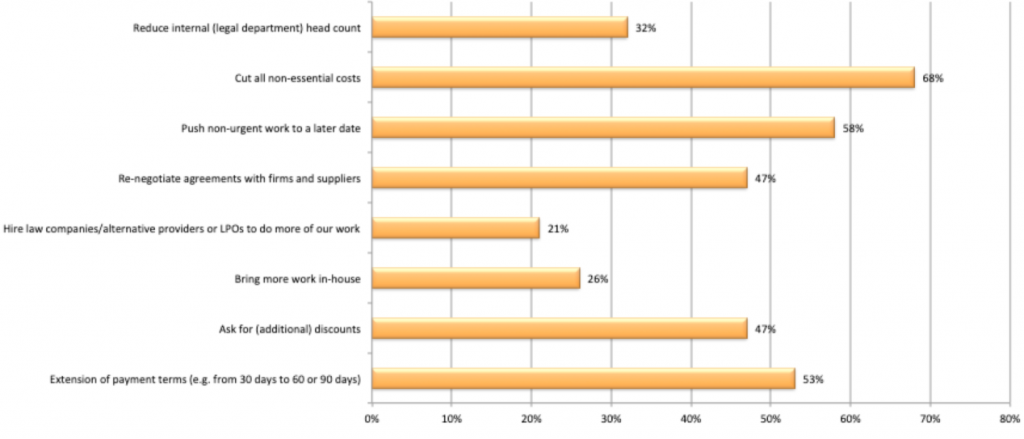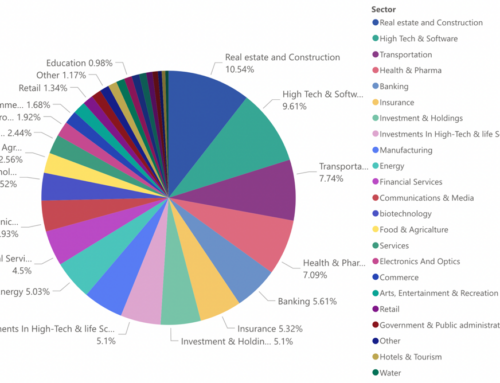While it is still early to fully understand the long-lasting effects of Covid-19, one thing appears certain – the legal industry, as will many others, will be different afterwards. It is widely believed that law firms and in-house departments will be transformed, and that the pandemic will usher the legal sector more fully into the digital age and lead to an integration of business practices. In this article, we asked senior legal and marketing professionals for their thoughts and insights on how Covid-19 will impact the legal industry.
Q: What have been the most pressing concerns for partners in law firms since the outbreak?
Ross Fishman, CEO Fishman Marketing:
Lawyers who have been on the margins are seeing their contracts terminated. A friend of mine, a terrific trial lawyer, was recently let go. He was a senior partner in a large law firm who had not managed his own clients in some years. The firm had been carrying him on the books at a reduced compensation for a while because their business was good. Now that business is down, they used this as the excuse to fire him and other less-productive lawyers. When business comes back, the firm will look even more profitable because they will only employ the most productive partners.So, this is a particularly important time for partners to reach out to their most important contacts with real care and authenticity, to seek to help them through this crisis. It is the time to solidify their relationships, even if they’re not able to bill for the work. When businesses are in crisis, they’ll remember those who helped them through these difficult times. Hopefully, it will lead to billable work, now or in the future. Either way, it’s the decent, caring thing to do.
Paul Smith, former Global Chairman of Eversheds Sutherland:
The biggest challenge for most firms has been preserving cash flow and they have responded by cutting pay, delaying partner profits, furloughing staff, part time working, freezing recruitment and cutting all discretionary spending. Difficult conversations are being had with lenders. Of the top 100 UK law firms 20% had less than £1 million in cash reserves. Staying solvent is the priority and many firms were in distress before the current crisis with rising costs and a reluctance on the part of clients to pay increased fees. As in 2008, some big names firms will go under.
Q: How has the crisis changed the way GC’s/companies will engage with law firms? Are there trends you can anticipate?
Dr. Silvia Hodges Silverstein, CEO, Buying Legal Council:
From research we had recently conducted, we have seen organizations dealing mainly with cutting all non-essential costs, the extension of payment terms and pushing non-urgent work to a later date. Additional tactics include:

Q: How are law firms coping, personally and professionally? With advantages and disadvantages to working remotely/from home, how have you found that change? What are the key challenges facing the industry?
Danny Collins, CEO, Global Legal Media:
Law firms have adapted pretty seamlessly and quickly to the new conditions and I suspect that many will have found additional productivity in the absence of a commute. Of course, the emotional impact of the virus is a different matter and firms should be aware of the need for additional support for all staff.
The challenges are the same as before but all the more pressing and pronounced. How best to support clients through a fast-evolving and uncertain climate.
Idan Nishlis, CEO, Nishlis Legal Marketing:
The way law firms engage and communicate with clients will probably change, now that clients have seen that meetings can be held productivley in a short notice and via online. Moreover, this cuts down on expenses firms used to tag to their clients, such as travel. If done effectively, firms can come out of the crisis strong and much more efficient, as a business. To name an example, firms are adopting solutions that include increased communication and transparency towards management.
Q: How, to your opinion, will the legal industry change? How will the “new normal” look for law firms?
Ross Fishman:
In the good times, law firms tend to grow inefficiently, adding surplus capacity because their rates are high and they’re so profitable. In lean times like these, they need to find ways to become much more efficient. Firms are starting to learn for the first time ever that they can work remotely. Although the transition was abrupt and painful, many firms have purchased the technology that has enabled them to work from home comfortably and efficiently.
They are finding that many of their lawyers can work effectively from home, without the constant distractions they have at work. They’re also learning how nice it can be to work from home in their comfortable sweat clothes and avoid the long commutes. Many firms I know are starting to look at ways to drastically reduce one of the biggest overhead expenses, their rent. We may find in the future that firms will have smaller overall footprints, with fewer offices, as they encourage their lawyers to work from home 2-3 days per week.
Joshua Peck, Joshua Peck Communications:
The pandemic has made clear to attorneys that a law firm is an organic whole, and must be operated and must practice as such, not as a collection of individuals. Technology has been especially important during the quarantine, but everyone has a role to play–human resources, to help with the many personnel problems that have already emerged and are yet to emerge; facilities directors, to adjust the physical space to new realities; and certainly marketing and business development, to help firms rebound from the dark days we are currently experiencing.
My observation is that partners and firm leaders increasingly recognize the importance, even crucial role, of the “lower-downs,” including hard-working associates and counsel. Our collective final destination is as yet not clear, but a higher level of respect, awareness of everyone’s contribution, and even kindness may well be on the horizon. It may come down to the simplest gestures and words. Perhaps, the next time a partner comes back to work at the office, and asks a legal assistant “How are you doing?”, the partner will actually signify that he or she really wants to KNOW.
Idan Nishlis:
Law firms were very slow to adopt technology, even when legal-tech was knocking on their doors. Now, being forced to use technology and feeling more comfortable about it, firms will harness technological solutions. These solutions will enhance communication with clients and among lawyers, allow transparency between the lawyers and the client and between the lawyers and firm management, make the firm more productive and offer various other solutions.
Q: Which sets of skills do you think have been critical for your lawyers and teams, and which skills will remain important once business resumes to a new normal?
Gail Jaffa, Managing Partner, PSMG LLP:
The skills which have been critical and will become more critical are IT skills to connect firms and lawyers digitally with clients. The crisis will hasten digital transformation with greater use of data to understand client needs. Clients will interact more with firms through technology be it online training, self service, remote meetings …
Danny Collins:
Communication is paramount. How to ensure the high levels of empathy, analysis and reasoning are communicated through a digitized practice and how to best communicate that to a changed world.







